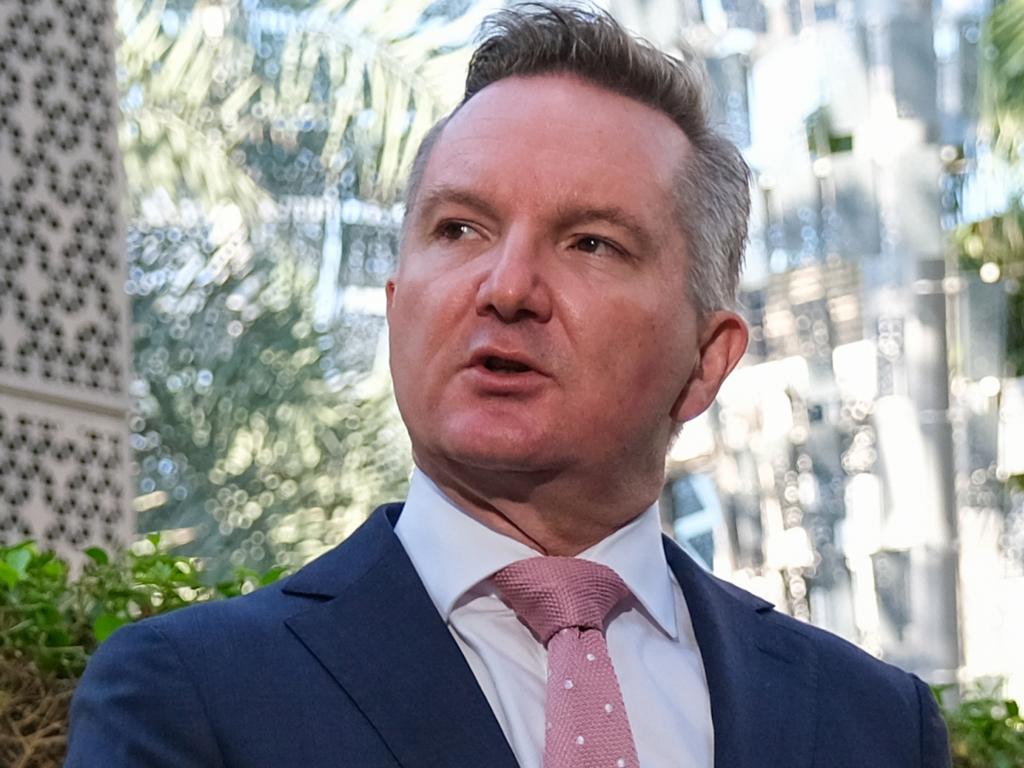Wishful rhetoric on fossil fuels’ exit hard to COP


Mentioning fossil fuels in the final text does not mean much in itself, but it is now the platform on which future COPs will be built. After days of wrangling the final text, the conference called on parties to “transition away from fossil fuels in energy systems, in a just, orderly and equitable manner”.
It called for renewable energy capacity to be tripled, energy efficiency improvements and for an accelerated implementation of technologies such as carbon capture, utilisation and storage. It cited a role for “transitional fuels”, likely gas.
For Australia, the outcome is significant and will have both immediate and long-term implications. In two years’ time the Albanese government hopes to host a COP in co-operation with small Pacific Island states. Chris Bowen has put Australia “all in” on turning our back on what are now major export industries, coal and gas. This puts Labor on the same page as the Greens. Together with financial compensation for developing nations, outright rejection of fossil fuels has always been the destination for climate activists.
Unlike comparable developed countries, Australia has refused to join a global push to expand nuclear energy.
The Dubai hosts played a canny hand in getting arguments about finance off the agenda early in the talks by confirming a $US30bn investment fund to deliver assistance to developing nations.
A deeper look at the fund, however, reveals just another profit-driven sovereign investment vehicle. Australia pledged hundreds of millions of dollars worth of foreign climate aid both in infrastructure assistance and gifts to the Green Climate Fund. But there were immediate calls for us to double our contribution.
A sign of the financial stakes can be found in the fact that, with a loss and damage fund agreed, talks have already turned to another new fund expected to deliver further trillions of dollars to developing nations.

Much was made during the talks about how more than a hundred nations, representing about half of global greenhouse gas emissions, favoured a hard exit for coal and gas. More important is the group of nations responsible for the remaining 50 per cent of emissions, who intend to continue building fossil fuel assets and growing their emissions.
Away from the UN hoopla, the Albanese government must explain why it makes sense for Australia to limit our existing national income from fossil fuels, while at the same time pivoting to a renewable energy system that relies on government mandate and largesse to become real. Forgoing nuclear will make the long-term transition more difficult, and expensive.
Much is said about Australia becoming a renewable energy superpower without proper explanation of what this actually means. We are not alone in the race to develop hydrogen and other fuels, nor are we at the front of the curve. China and the US still dominate on technology and providing the green necessities of the future.
Posing with private sector ships that might one day run on an ammonia/diesel mix, but still made the trip to Dubai on diesel fuel, might be a good picture opportunity but it underplays the scale of the challenge.
To shift to renewables we must face hard questions about the inflationary pressures of doing it all at once, as well as mining the oceans for the metals needed to make it happen. Away from the airconditioned major cities, millions of the world’s poor still travel by inefficient scooters fuelled from petrol sold on the side of the road in bottles.
Tackling this inequity is the UN’s real agenda and challenge. The published trajectories for future emissions suggest that attempting to change the weather is a fool’s errand. Attention should be more focused on ridding the world’s rivers and oceans of plastic waste and safeguarding environmental assets and services that remain intact.







There are two ways to view the outcome of the COP28 climate meeting in the UAE. One is that the final agreement is a big fat nothing burger that is long on rhetoric but shy on action. Another is that the Dubai meeting is further proof of the relentless incrementalism that defines the United Nations process.